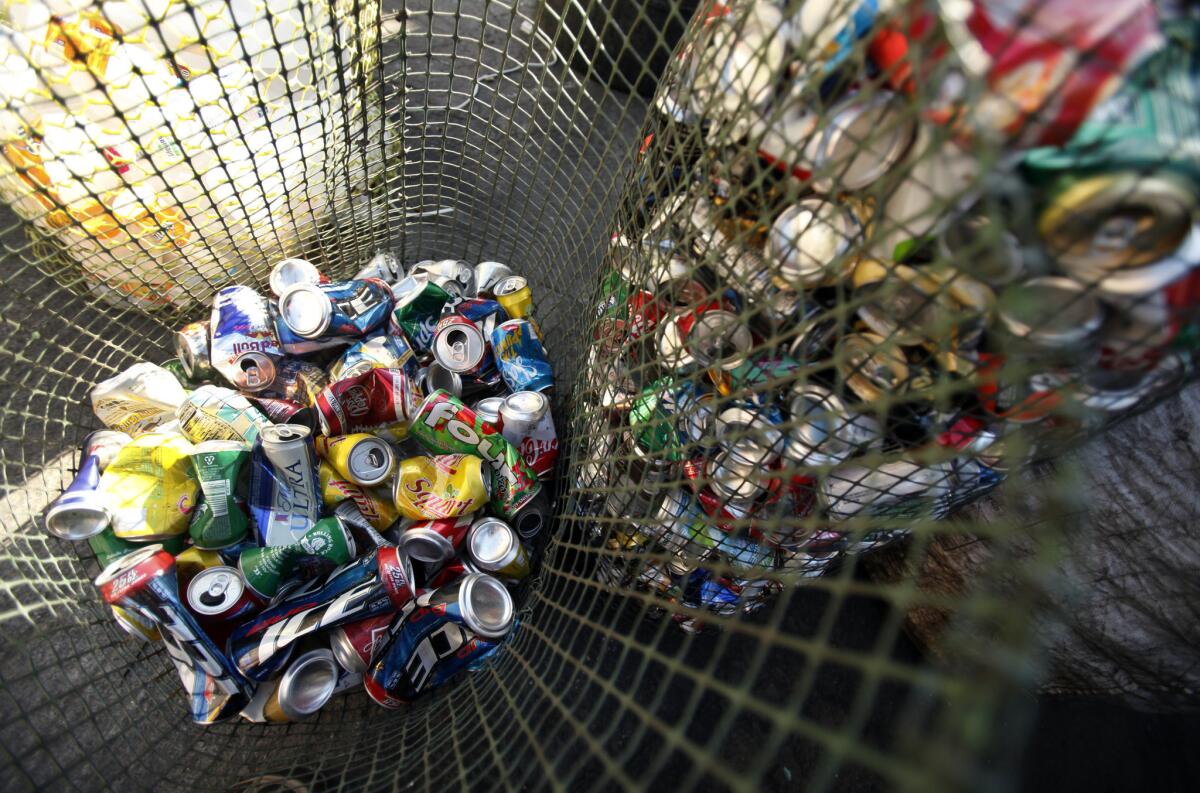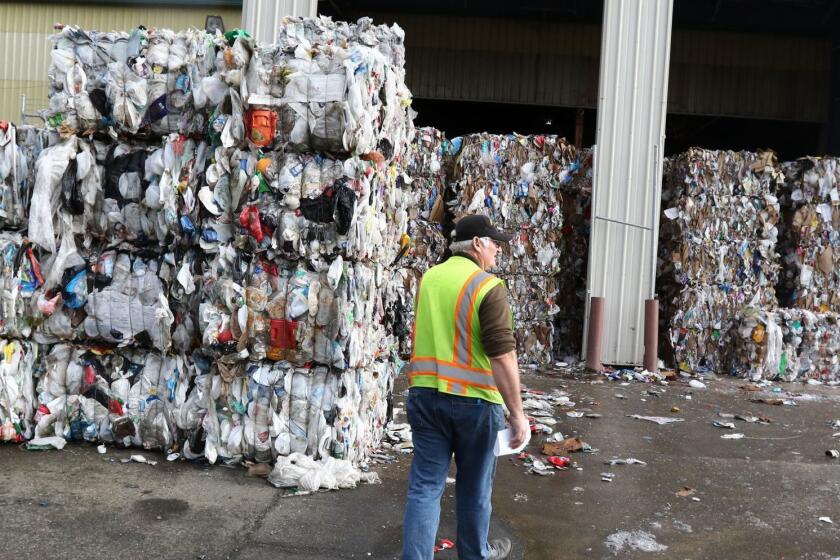California’s largest recycling center business, RePlanet, shuts down

California’s largest operator of recycling redemption centers has shut down and laid off 750 employees.
The Mercury News reported Monday that the company, Ontario-based RePlanet, has closed all 284 of its centers.
RePlanet President David Lawrence said the company stopped operating because of increased business costs and falling prices of recycled aluminum and PET plastic.
The move comes three years after RePlanet closed 191 of its recycling centers and laid off almost 300 employees.
This leaves fewer options for people to redeem their recyclables, which is especially concerning for those who live in poverty or experience homelessness and rely on recycling for income.
Consumer Watchdog, a nonprofit that studies issues in California’s recycling industry, estimated that more than 40% of redemption centers have closed in the last five years. The closures result in consumers getting back only about half of their nickel and dime deposits on bottles and cans, according to a recent report from the nonprofit.
The closures also mean more bottles made of aluminum and polyethylene terephthalate, or PET, will end up in landfills. People will either throw their recyclables directly into the garbage or place them in curbside recycling bins, which are often filled with contaminated material that must be discarded. China, which has bought much of the U.S.’s recyclable material, has become stricter about what kinds of material it will accept.
Advocates are urging the state to reform how it subsidizes recycling centers. They worry that now more recyclables will end up in landfills.
Consumer Watchdog responded to news of the RePlanet closure by urging CalRecycle, the California agency in charge of recycling, to require all grocery and convenience store chains to start redeeming cans and bottles.
Earlier this year, California lawmakers proposed legislation that would require plastic and other single-use materials sold in the state to be either reusable, fully recyclable or compostable by 2030. The bill, AB 1080, passed the state Assembly and is under consideration in the Senate.
Californians use — and then toss — a tremendous amount of paper and plastic packaging material every day: takeout coffee cups and lids, cereal boxes, wine bottles, plastic bags, clamshell food containers, and on and on.
More to Read
Inside the business of entertainment
The Wide Shot brings you news, analysis and insights on everything from streaming wars to production — and what it all means for the future.
You may occasionally receive promotional content from the Los Angeles Times.











